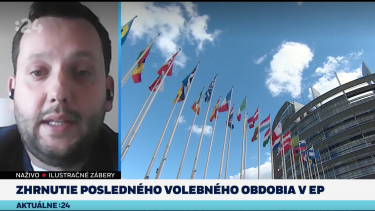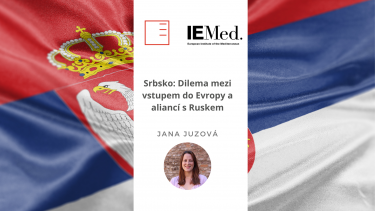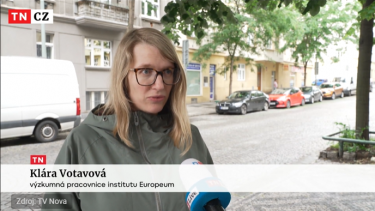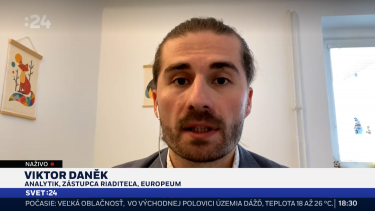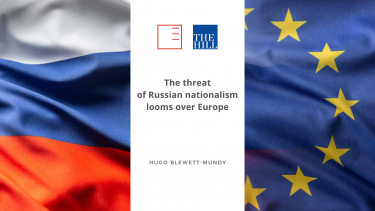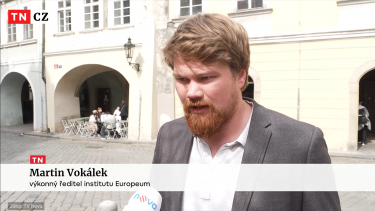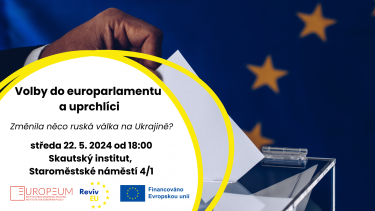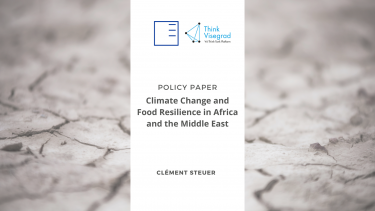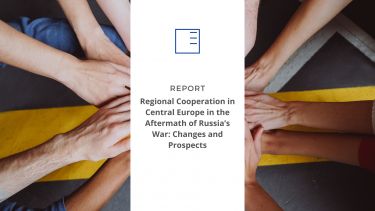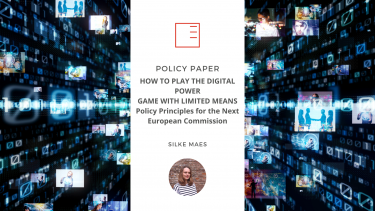RTVS | The Last Parliamentary Term in the European Parliament
What was the last parliamentary term like in the European Parliament? How did it manage two crises – the war in Ukraine and COVID-19? And how can the aid to Ukraine be assessed? Žiga Faktor, Deputy Director and Head of the Brussels Office of EUROPEUM Institute, answers these and other questions in an interview for Slovak television RTVS.
Zjistit více
IEMED | Serbia: The Dilemma between European Accession and Alliance with Russia
With Ukraine’s defence against Russia heading toward a stalemate in the second half of the year and increased pressure inside the EU to deliver on its promises to provide the country with needed financial and military support, Serbia’s ambiguous relationship with Russia and the West has been brought increasingly into the spotlight in 2023. The Serbian Progressive Party (SNS), ruling since 2012, and President Aleksandar Vučić have been responsible for continued democratic backsliding and have failed to align with the Union’s foreign policy during Serbia’s lengthy EU accession process, pushing the situation closer towards a tipping point in Serbia-EU relations. Senior researcher at EUROPEUM Institute, Jana Juzová, describes this in more detail in her article for the European Institute of the Mediterranean.
Zjistit víceTN.cz | Possible changes in European subsidies
The European Parliament elections are less than two weeks away, and one of the main topics will be the subsidy system. A number of experts are calling for it to be changed, and questions arise as to where the European Union will get the money for subsidies. The transformation of the EU towards green technologies could limit financial resources for structural funds, which would have a negative effect mainly on poorer countries, including the Czech Republic. Economists also point to possible financial problems for the EU after the departure of Great Britain, one of the biggest contributors. Klára Votavová, a researcher at the EUROPEUM Institute, commented on the situation for TV Nova.
Zjistit víceRTVS | Does von der Leyen have a clear opponent after the Spitzenkandidaten debate?
Five candidates for the post of European Commission chief clashed in a Europe-wide debate on Thursday. Two factions did not field a candidate. The system of spitzenkandidaten, i.e. the leading candidates of each group for the post of president of the European executive, was created as an effort by MEPs to increase transparency in the filling of the highest posts in the European Union, which clearly includes the president of the Commission. Who will be the one who will form the majority after the elections and does the current head of the Commission, Ursula von der Leyen, have a significant opponent among the other spitzenkandidaten? Viktor Daněk, deputy director of EUROPEUM Institute, analysed the debate for RTVS.
Zjistit víceThe Hill | The threat of Russian nationalism looms over Europe
The threat of Russian nationalism poses a serious danger to Europe, as emphasized by the EU's High Representative for Foreign Affairs and Security Policy Josep Borrell in his speech in April. Russia is attempting to reassert its influence, particularly through its war against Ukraine, which undermines European security. What impact does the reemergence of Russian nationalism, supported by China, have on European security, and how should the West respond to this geopolitical reality? In his commentary for the American news website The Hill, Hugo Blewett-Mundy, an external collaborator and research fellow at EUROPEUM Institute, addresses this topic.
Zjistit víceTN.cz | The elections to the European Parliament are approaching. The main topic is security
The European Parliament elections will take place in just one month's time. The main issue is the security of the European Union, according to experts. The new composition of the European Parliament will address the war conflict in Ukraine and the Middle East, as well as migration. Martin Vokálek, executive director of EUROPEUM Institute, comments for TN.cz.
Zjistit více
RevivEU | Did the Russian war in Ukraine change anything?
We invite you to a public podcast recording focusing on the discussion of changes in the Czech approach to refugees due to the Russian war in Ukraine. We will delve into shifts in Czech solidarity towards refugees and also discuss the new migration pact, its content, and significance.
Zjistit vícePolicy Paper | Climate Change and Food Resilience in Africa and the Middle East
Russia's war in Ukraine has destabilised supply chains and strained food systems in Africa and the Middle East, highlighting their vulnerability and the need to increase their resilience. Writes Clément Steuer, Senior Research Fellow at the Institute of International Relations Prague.
Zjistit víceReport | Regional Cooperation in Central Europe in the Aftermath of Russia’s War: Changes and Prospects
On April 18th, EUROPEUM’s Brussels Office in partnership with PISM Brussels Office under the Think Visegrad platform hosted a discussion titled “Regional Cooperation in Central Europe in the Aftermath of Russia’s War: Changes and Prospects”. This event was attended by 15 experts from think tanks and representatives of EU institutions.
Zjistit vícePolicy Paper | HOW TO PLAY THE DIGITAL POWER GAME WITH LIMITED MEANS Policy Principles for the Next European Commission
In the global competition for technological dominance, this policy brief sets out six principles for the next Commission on how to play the digital power game with limited resources. Despite the size of its market, the EU lacks common fiscal capacity, capital markets and labour market dynamics. Writes Silke Maes, Research Fellow at EUROPEUM Institute.
Zjistit víceStaroměstské náměstí 4/1
Praha 1 - Staré Město
110 00
tel.: +420 212 246 552
email: europeum@europeum.org
https://www.europeum.org
